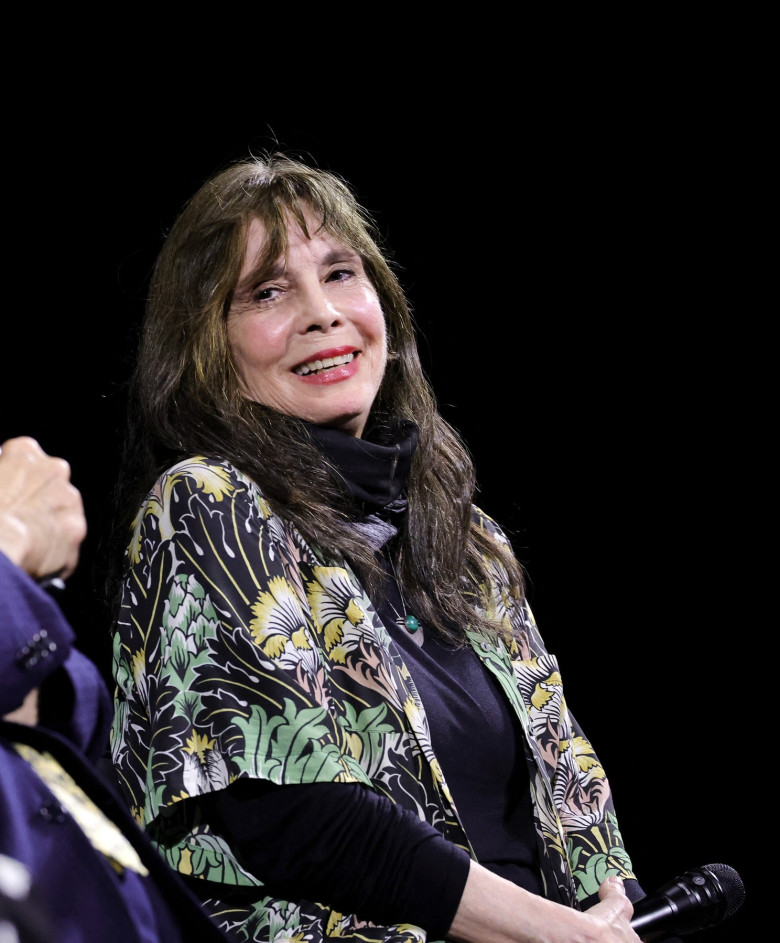The Great Gatsby's Real-Life Counterparts: Examining The Men Who Shaped The Novel

Table of Contents
The Influence of Fitzgerald's Own Life and Personality
Fitzgerald's Personal Struggles and Gatsby's Pursuit of the American Dream
Fitzgerald's own life serves as a rich tapestry from which Gatsby's character is woven. His personal ambitions, his tumultuous relationship with Zelda Sayre, and his own pursuit of the American Dream all mirror aspects of Gatsby's obsessive quest for Daisy Buchanan.
- Fitzgerald's early struggles: Born into a relatively comfortable middle-class family, Fitzgerald still experienced periods of financial insecurity, fueling his desire for wealth and social standing.
- His desire for wealth and social status: Fitzgerald's ambition extended beyond mere financial success; he craved acceptance into the highest echelons of society, a desire reflected in Gatsby's relentless pursuit of the elite.
- His complex relationship with Zelda Sayre: The passionate, yet ultimately troubled, relationship between Fitzgerald and Zelda mirrors the complicated dynamics between Gatsby and Daisy. Both relationships are characterized by intense longing, societal obstacles, and ultimately, unfulfilled desires.
These parallels between Fitzgerald's personal experiences and Gatsby's narrative reveal the deeply personal nature of the novel. The author's own aspirations, frustrations, and romantic entanglements are seamlessly interwoven into the fabric of Gatsby's character, making him both relatable and tragically flawed.
The Self-Made Man Myth and Gatsby's Illusions
Gatsby's carefully constructed persona as a self-made man embodies the allure of the American Dream during the Roaring Twenties. However, the novel subtly reveals the darker side of this myth, highlighting the illusions and deceptions that underpin Gatsby's wealth and social standing.
- The allure of the self-made man in the Roaring Twenties: The era celebrated individualism and entrepreneurial spirit. Gatsby's rags-to-riches narrative, however dubious its origins, resonated with the societal zeitgeist.
- The dark side of wealth acquisition: The novel hints at the morally ambiguous nature of Gatsby's wealth, suggesting that his riches may have been obtained through less-than-legitimate means. This ambiguity contributes to his enigmatic nature.
- Gatsby's carefully constructed persona: Gatsby's meticulously crafted identity is a façade, designed to attract Daisy and gain acceptance into high society. This highlights the artificiality and superficiality of the era's social structures.
Gatsby's relentless pursuit of wealth and status is not simply a personal ambition; it’s a reflection of the broader societal pressures and expectations of the Jazz Age, a time defined by both extraordinary prosperity and deep-seated anxieties.
The Real-Life "Gatsbys": Identifying Potential Inspirations
Edward "Ned" Hickok: The Mysterious Millionaire
One prominent candidate for a real-life Gatsby counterpart is Edward "Ned" Hickok, a wealthy and enigmatic figure who moved in Fitzgerald's social circles. Hickok's life possessed certain intriguing parallels with Gatsby's fictional existence.
- Hickok's wealth: Hickok was a man of considerable means, although the exact source of his wealth remains somewhat shrouded in mystery, much like Gatsby's.
- His secretive lifestyle: Hickok maintained a certain air of mystery, a characteristic that resonates strongly with Gatsby's enigmatic personality.
- His connections to Fitzgerald: While not definitively established, circumstantial evidence suggests a connection between Fitzgerald and Hickok, lending credence to the theory of Hickok's influence on Gatsby's character.
While the extent of Hickok's influence is debated, the similarities between his life and Gatsby's are striking, suggesting that he may have served as at least a partial inspiration for Fitzgerald's creation.
Other Potential Influences: A Wider Look at the Jazz Age's Elite
Beyond Hickok, numerous other figures from the vibrant and often extravagant world of the Jazz Age likely contributed to the creation of Gatsby. Bootleggers, socialites, and other wealthy individuals, each with their own unique stories, may have unconsciously shaped Fitzgerald's vision.
- Examples of other wealthy and influential figures of the era: The sheer number of wealthy and influential individuals Fitzgerald encountered provided a rich pool of potential inspiration for aspects of Gatsby's character.
- The general atmosphere of the Jazz Age and its impact on Fitzgerald's writing: The overall atmosphere of excess, ambition, and social upheaval during the Roaring Twenties undoubtedly informed Fitzgerald's depiction of Gatsby and the world he inhabited.
The diverse range of characters Fitzgerald encountered further underscores the multifaceted nature of Gatsby's creation, showcasing the breadth of influence that shaped this iconic character.
Beyond the Individual: The Societal Context Shaping Gatsby
The Roaring Twenties and the American Dream's Transformation
The societal context of the Jazz Age plays a crucial role in shaping Gatsby's character and his tragic fate. The post-war economic boom, coupled with significant social and cultural changes, profoundly altered the interpretation of the American Dream.
- Post-war prosperity: The economic prosperity of the 1920s created a climate of optimism and ambition, but also fueled social inequalities and anxieties.
- Social changes: Rapid social changes challenged traditional values and norms, creating both excitement and uncertainty.
- The rise of consumerism: The burgeoning consumer culture emphasized material possessions as symbols of success, reinforcing the allure of wealth and status.
- Prohibition: The era's prohibition of alcohol fostered a culture of lawlessness and illicit activities, contributing to the morally ambiguous atmosphere that surrounds Gatsby.
These societal shifts shaped the aspirations and anxieties reflected in Gatsby's relentless pursuit of his idealized vision.
The Illusion of the American Dream and Gatsby's Tragic Fate
Gatsby's tragic demise serves as a powerful commentary on the inherent contradictions of the American Dream during the Roaring Twenties. His relentless pursuit of an unattainable ideal ultimately leads to his destruction.
- Gatsby's unattainable goals: Gatsby's desire to recapture the past and win back Daisy proves to be an ultimately futile endeavor.
- The corruption and disillusionment underlying the era's prosperity: The novel subtly exposes the corruption and moral decay hidden beneath the surface of the era's economic success.
- The tragic consequences of chasing an idealized vision: Gatsby's unwavering commitment to a romanticized past blinds him to the realities of the present, leading to his downfall.
Gatsby's failure is not simply a personal tragedy; it reflects the larger societal commentary on the inherent limitations and potential disillusionment embedded within the American Dream itself.
Conclusion
The search for The Great Gatsby's Real-Life Counterparts reveals a complex interplay between Fitzgerald's personal experiences, the individuals he knew, and the broader societal context of the Roaring Twenties. While pinpointing a single definitive source of inspiration for Gatsby proves elusive, exploring these potential influences enriches our understanding of the novel's enduring power and its poignant exploration of the American Dream. To further delve into the fascinating world of The Great Gatsby's Real-Life Counterparts, explore Fitzgerald's biography and the historical context of the Jazz Age. Uncover the real-life echoes within this timeless masterpiece and gain a deeper appreciation for its enduring legacy.

Featured Posts
-
 Shevchenko Vs Weili Superfight Ufc 315 Aftermath
May 11, 2025
Shevchenko Vs Weili Superfight Ufc 315 Aftermath
May 11, 2025 -
 Tam Krwz Ky Nyy Mhbt Emr Se Bra Frq Awr Shayqyn Ke Rdeml
May 11, 2025
Tam Krwz Ky Nyy Mhbt Emr Se Bra Frq Awr Shayqyn Ke Rdeml
May 11, 2025 -
 Celtics Vs Knicks Game Where To Watch The Live Stream And Tv Broadcast
May 11, 2025
Celtics Vs Knicks Game Where To Watch The Live Stream And Tv Broadcast
May 11, 2025 -
 Black Gold In Uruguay Assessing The Viability Of Offshore Drilling
May 11, 2025
Black Gold In Uruguay Assessing The Viability Of Offshore Drilling
May 11, 2025 -
 Sylvester Stallone Si Rocky Venituri Si Onorariile Actorului
May 11, 2025
Sylvester Stallone Si Rocky Venituri Si Onorariile Actorului
May 11, 2025
